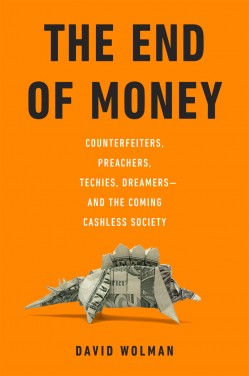How to say No . . . especially to things you want to do
Last night, I had a breakthrough: I realized that personal productivity is the new dieting. (Like all evening epiphanies, this one is subject to future revision, refinement, and rejection.)Here’s what I mean.
A century ago, America didn’t have much of a weight loss industry. Why? Lack of demand. Back then, calories were generally scarce and expensive. As a result, few people had the luxury to overindulge — which meant that waistlines didn’t expand and the Dieting Industrial Complex couldn’t exist.
But then, over the next few decades, a funny thing happened: The economics flipped. Calories became abundant and cheap. In this new environment, people, driven by genes programmed to accumulate those calories, did overindulge — which delivered lots of new customers to a once-tiny industry and presented our society with clutch of unexpected problems (obesity, diabetes, etc.)
Personal productivity has followed the same path.
A century ago, middle class Americans didn’t have many options or much information. That enabled a simpler, though not necessarily better, life. So notwithstanding a few Ben Franklins and Napoleon Hills, we didn’t need a ginormous industry devoted to helping us sort through our choices and refine our priorities.
But then, once again, things flipped. We now inhabit an environment (at least in much of the developed world) of abundant options and boundless, inexpensive information. That has triggered our dopamine-seeking instincts to pile too much onto our professional plates — which in turn has produced an entire infrastructure to help us avoid gorging ourselves.
The result is that the question that has bedeviled dieters now bedevils many of us in the option-rich, information-saturated Conceptual Age: How do we say “No?”
But as the wise Elizabeth Gilbert points out in the short video clip below, it’s not just saying
no in general or declining what we don’t find interesting. It’s saying no to things we actually want to do.
Here the dieting analogy clarifies the problem. It’s easy for most of us to say no to a kelp and wheat germ smoothie. But saying no to the andouille cheese fries at Louisiana Kitchen? That’s tougher.
And so the more I think about it, the more I realize that one of our big challenges (again, for those of us who lucked out, live in the developed world, and earn our living through something besides grinding physical labor) is this: How do we say no to things we want to do?
I don’t have a good answer — but I have explored a few options:
- I’m a devotee of Getting Things Done and that’s helped a lot.
- I believe in Tom Peters’s idea of creating a “To-Don’t” list.
- Some folks use the equivalent of barricading the refrigerator with software like Freedom.
Instead, maybe there’s something we could say that indicates that their request falls into the “I’d love to, but my health depends on saying no to things I want to do” category. Maybe a phrase (“cheese fries”)? A new coinage (“R-No” — for “reluctant no”)? A link to this blog post?
I wouldn’t want to return to a world of limited options and pricey information any more than I’d like to return to a world of scarce, expensive calories. But I think we all need a little help dealing with our new circumstances and saying no to things that we want to do.
If you’ve got ideas on how to do that, leave them in the Comments section and I’ll repost the best advice.












